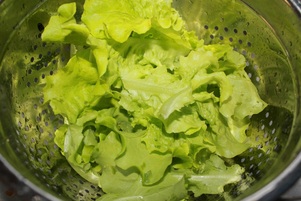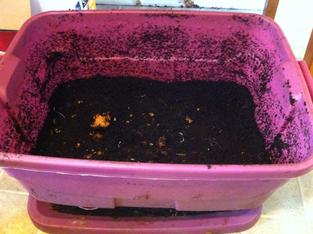
Nitrogen in the Garden
Nitrogen (N) is crucial to plant growth and is contained in fertilizers. However, excess N can contribute to environmental and human health problems. Students are studying the optimum rate of fertilizer usage by applying different types (synthetic fertilizer, manure, and compost) and levels of fertilizer treatment to the same crop. Additionally, nitrogen runoff from different soil types will be measured and compared.
Nitrogen (N) is crucial to plant growth and is contained in fertilizers. However, excess N can contribute to environmental and human health problems. Students are studying the optimum rate of fertilizer usage by applying different types (synthetic fertilizer, manure, and compost) and levels of fertilizer treatment to the same crop. Additionally, nitrogen runoff from different soil types will be measured and compared.

Compost Production
Composting food and garden waste prevents this organic material from entering landfills, where it decomposes and releases greenhouse gases. Vermicomposting (composting with worms) is a popular and easy method of composting. Students will test what conditions maximize composting efficiency, and compare the effect of composting method on plant growth. Current experiments compare how the temperature, pH, and carbon : nitrogen ratios change throughout decomposition processes with and without worms.
Composting food and garden waste prevents this organic material from entering landfills, where it decomposes and releases greenhouse gases. Vermicomposting (composting with worms) is a popular and easy method of composting. Students will test what conditions maximize composting efficiency, and compare the effect of composting method on plant growth. Current experiments compare how the temperature, pH, and carbon : nitrogen ratios change throughout decomposition processes with and without worms.
